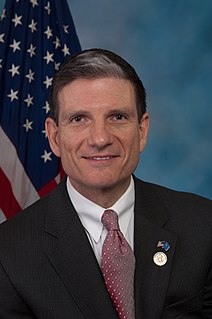A Quote by Sylvia Earle
Our insatiable appetite for fossil fuels and the corporate mandate to maximize shareholder value encourages drilling without taking into account the costs to the ocean, even without major spills.
Related Quotes
If we want energy security, then we have to reduce our appetite for fossil fuels. There's no other way. Other issues may crowd the headlines, but this is our fundamental challenge. Big challenges require bold action and leadership. To get the United States off fossil fuels in this uneasy national climate of terrorism and conflict in the Persian Gulf, we must treat the issue with the urgence and persistance it deserves. The measure of our success will be the condition on which we leave the world for the next generation.
We could replace people with fossil fuels, have higher and higher levels of industrialization, of agriculture, of production, without thinking of the green-house gases we were admitting, and climate change is really the pollution of the engineering paradigm, when fossil fuels drove industrialism. To now offer that same mindset as a solution is to not take seriously what Einstein said: that you can't solve the problems by using the same mindset that caused them.
The truth has no need to be uttered to be made apparent, and ... one may perhaps gather it with more certainty, without waiting for words and without even taking any account of them, from countless outward signs, even from certain invisible phenomena, analogous in the sphere of human character to what atmospheric changes are in the physical world.
A revolution in humanity's use of fossil fuel-based energy would be necessary sooner or later to sustain and to extend modern standards of living. It will be required sooner if we are to hold the risks of climate change to acceptable levels. The costs that we bear in making an early adjustment will bring forward, and reduce for future times, the costs of the inevitable eventual adjustment away from fossil fuels.
Carbon dioxide pollution is transforming the chemistry of the ocean, rapidly making the water more acidic. In decades, rising ocean acidity may challenge life on a scale that has not occurred for tens of millions of years. So we confront an urgent choice: to move beyond fossil fuels or to risk turning the ocean into a sea of weeds.
The true cost of the pollution that is being dumped into the atmosphere and manifests itself in our sick children dealing with asthma or older folks dealing with heart and lung disease from the pollutions created by the burning of these fossil fuels, may not be reflected in the prices of fossil fuels, but that does not mean we aren't paying a high price for them.





































